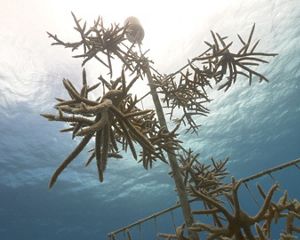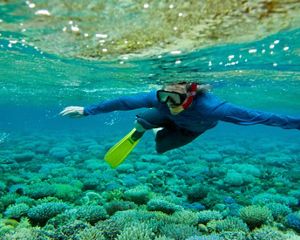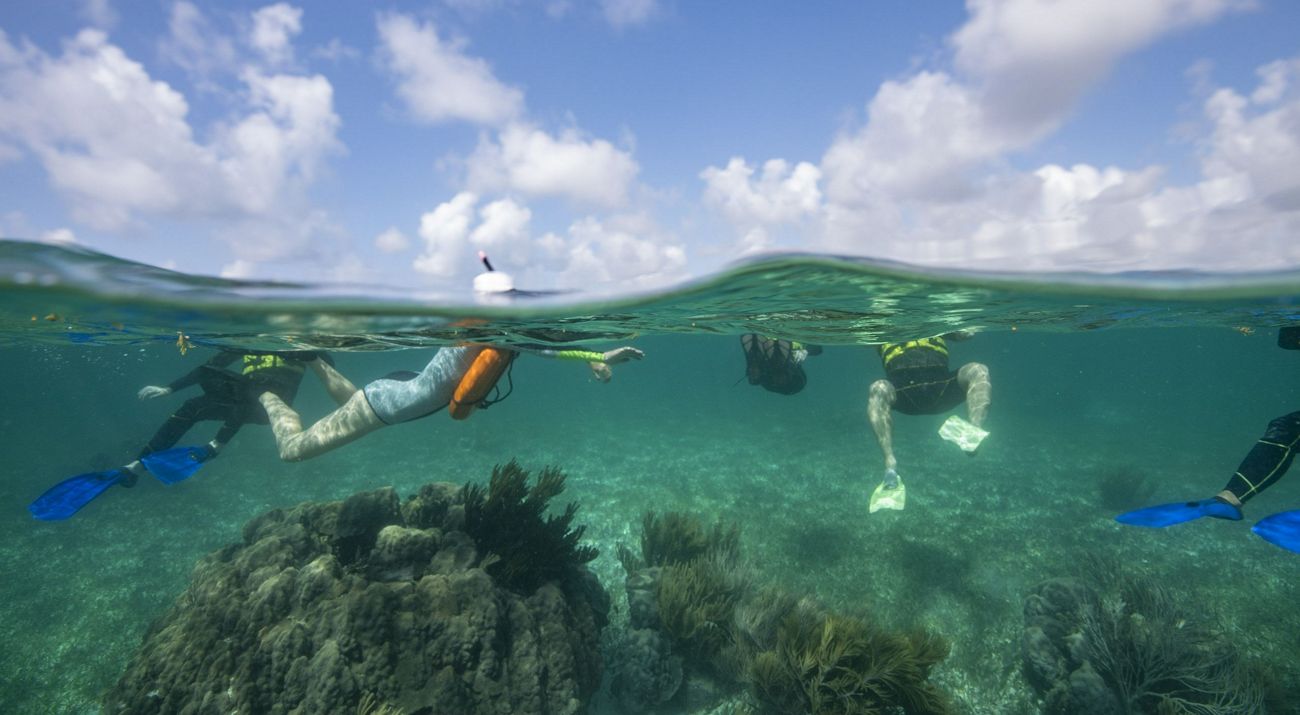
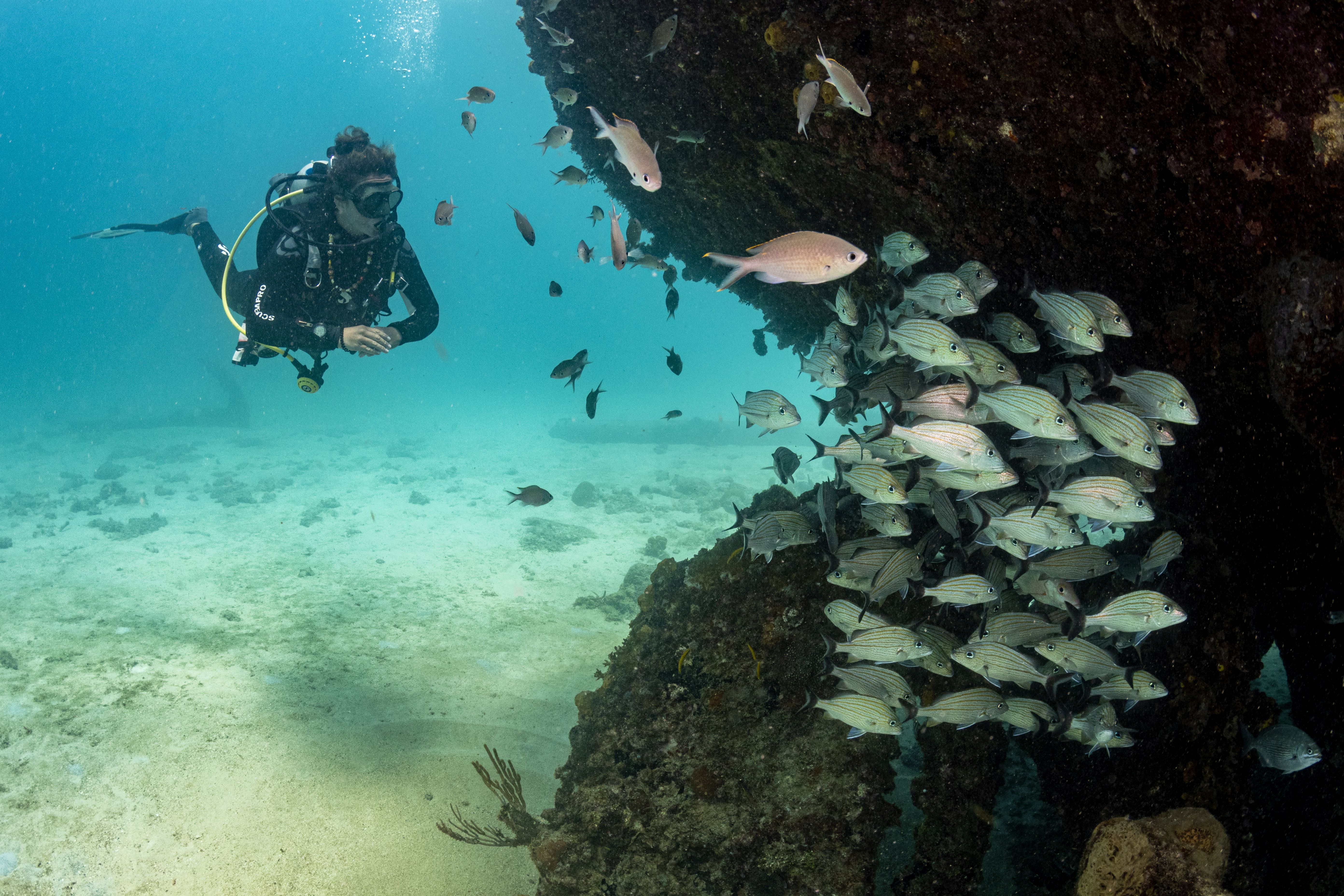
Coral Tourism
Scuba instructor and guide Kiera Bloom watches a school of fish on a shipwreck in Barbados.
© Shane Gross
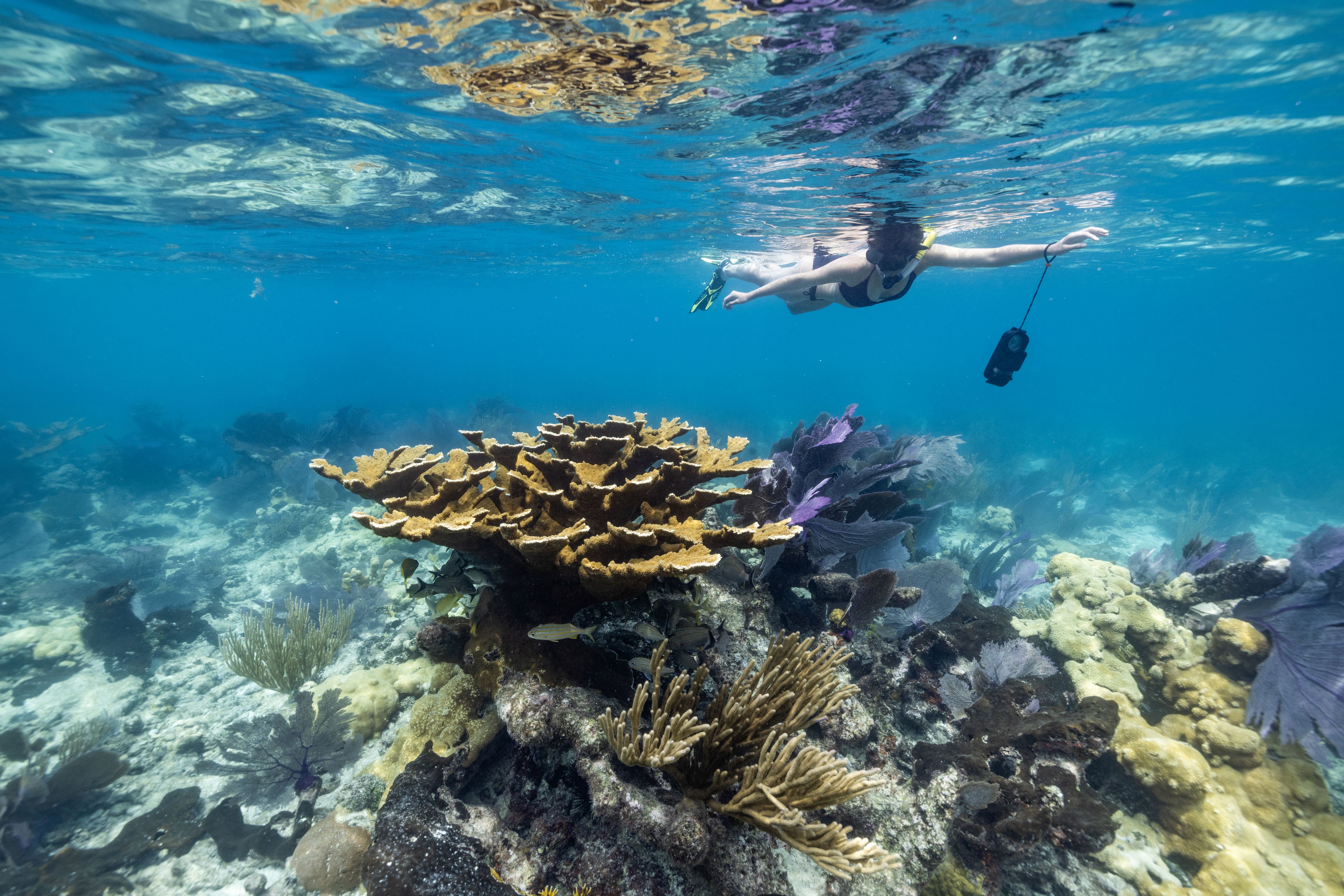
© Jennifer Adler
As a tourist, you have the power to help coral reefs continue to thrive and provide for local communities and marine life!
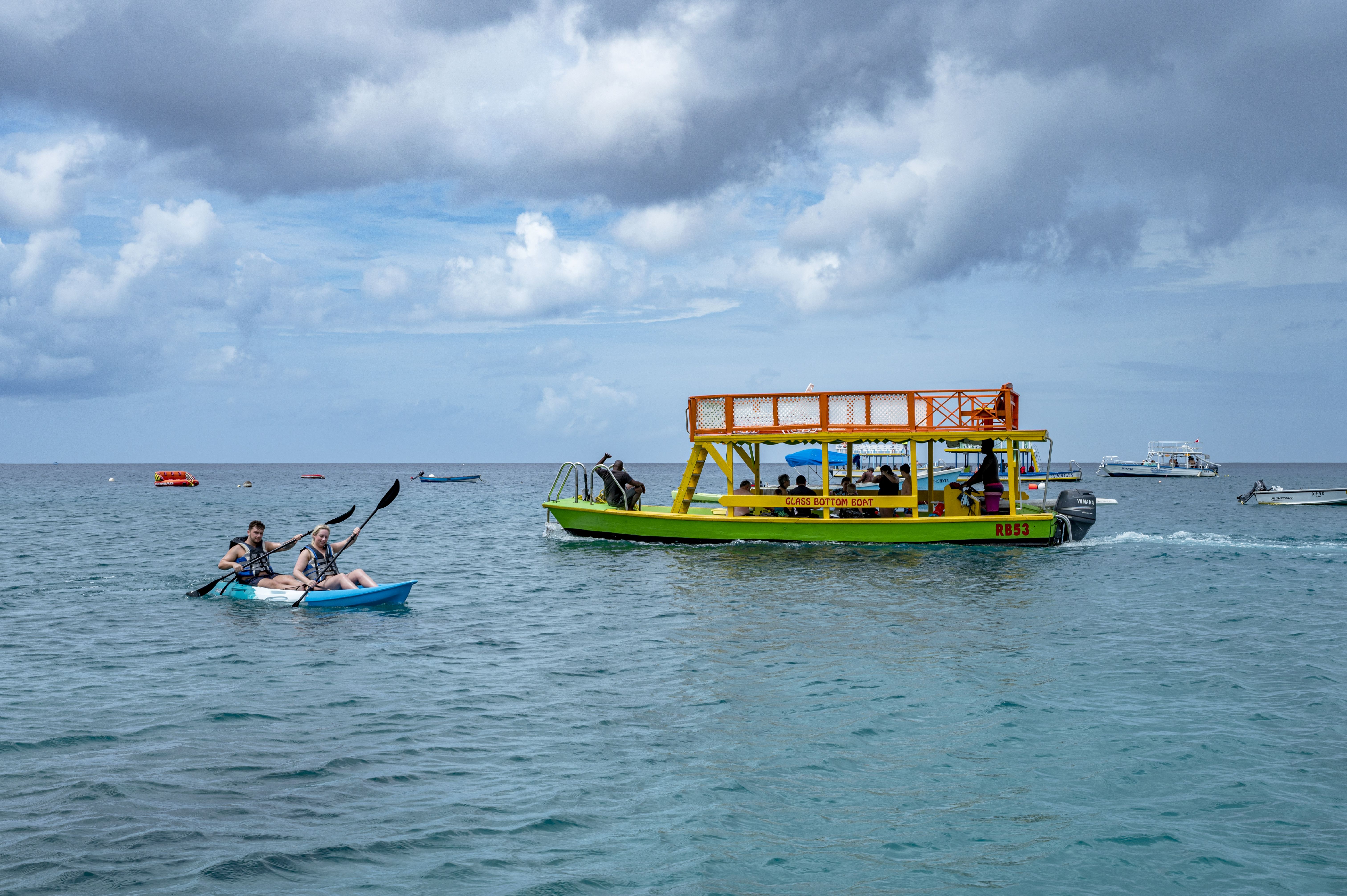
Coral Tourism
Kayakers and tourists aboard a glass-bottom boat in the recreation area of the Folkestone Marine Reserve in Barbados.
© Shane Gross
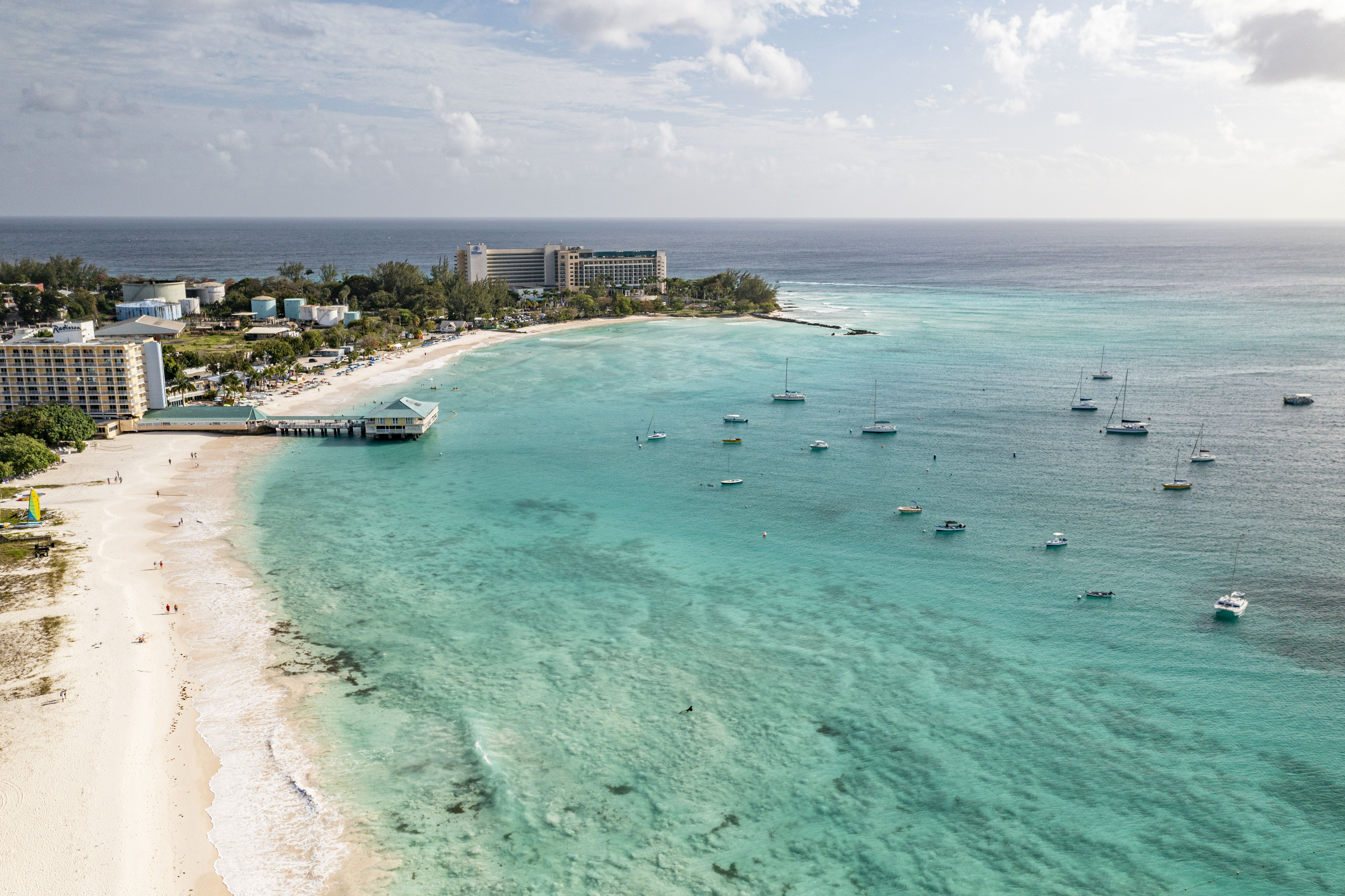
Coral Tourism
An aerial view of Carlisle Bay, Barbados.
© Shane Gross

Coral Tourism
A couple walks on the beach in Carlisle Bay, Barbados.
© Shane Gross

Coral Tourism
Kiteboarding off Silver Rock Beach, Barbados.
© Shane Gross
Our work is made possible through the dedication and collaboration of our valued partners. We are especially proud to work alongside the United Nations Environment Programme, whose global leadership and commitment to sustainability help amplify the impact of our shared initiatives. We also gratefully acknowledge the Principality of Monaco as a financial supporter of this work.


